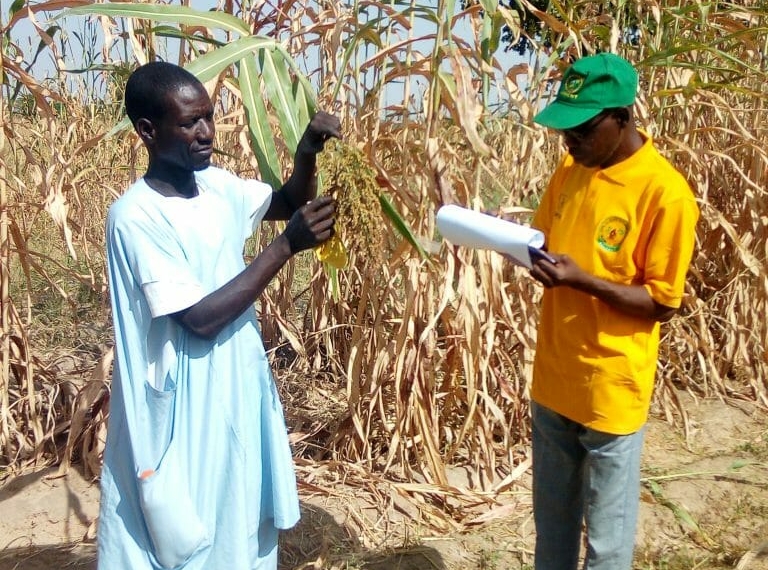The National Centre for Genetic Resources and Biotechnology (NACGRAB) reports that it has begun evaluating 300 samples of indigenous cowpea and sorghum in order to mitigate the effects of climate change.
The study was also intended to increase farmer production capacity in order to achieve the program’s food security goals.
Dr. Sunday Aladele, the Centre’s Director/Chief Executive Officer, stated this on Saturday during the Farmers Participatory Variety Selection exercise in Kano State’s Minjibir and Bebeji Local Government Areas.
Aladele stated that the “Seeds for Resilience” project, which is supported by the Global Crop Diversity Trust, will improve the use and management of seed collections through multi-stakeholder processes.
The director, who was represented by Dr Abisoye Ojo, stated that Kano, Niger, and Oyo States had been chosen to participate in the country’s pilot project.
He stated that the project centered on cowpea and sorghum, as well as other climate-resilient crops.

According to the director, approximately 150 samples of indigenous cowpea and sorghum were planted in Kano state for the purpose of evaluation.
“Following the harvest, participating farmers will be asked to select the best of their choice and explain their reasoning.”
“Those chosen will also be multiplied by the center and distributed to farmers for further planting and sharing with other farmers,” he explained.
Aladele stated that the crop varieties chosen for evaluation were obtained from farmers across the country.
“We don’t want a situation in which only researchers come to us for seeds for breeding and other research purposes,” he said, adding that the project would increase crop production in the country.
Mr Mayowa Olubiyi, Technical Assistant in the Centre, also spoke, stating that 100 farmers were chosen for the project in each of the three participating states.
Olubiyi stated that the farmers who would benefit from the germplasm were organized into the Germplasm User Group.
He stated that the project would increase resilient seed multiplication in light of the current climate change that is wreaking havoc on many parts of the country.
He stated that 150 sorghum samples were planted on July 10, 2021, and 150 cowpea samples were planted on August 4, 2021.
Some of the seeds germinated and matured, while others wilted due to a lack of rainfall, according to him.

















Discussion about this post